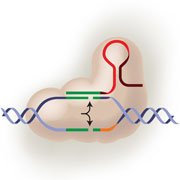Ongoing Research Projects

Genome sequences and annotations
The Chinese hamster ovary (CHO) cell line is the preferred host cell line for most biotherapeutics, yet it has remained poorly characterized. Thanks to our recent genome sequencing efforts, we have developed the highest quality assembly and annotation of the hamster genome and 7 additional cell lines. These sequences will provide the blueprints to better engineer CHO cells to produce biopharmaceuticals. Our team is working to further refine these genomes.

Clones secreting human proteins
Most drugs on the market are optimized variants of human proteins. To understand the determinants of enhanced protein production, our team is analyzing a large library of CHO cells expressing diverse classes of human genes. These are being characterized to aid in recombinant gene design and cell line engineering.

Metabolism and glycosylation models
Our team is leading international efforts to build models of the following pathways in CHO: metabolism, synthesis, folding and glycosylation. Models of these pathways will help elucidate how they interact with each other. We can use these models to figure out how to rebuild the CHO cell pathways to produce the desired drug products in higher yields and quality.

New safe harbor integration sites
We are developing a list of "safe harbor" integration sites, which are locations in which human genes can be safely inserted into the hamster genome. Our maps of safe harbor integration sites will provide multiple locations for stable protein expression to expedite cell line development pipelines.

Next-generation genome editing techniques
Our advanced screening and genome editing tools will facilitate discovery of genes that produce desirable cell traits. We are further developing these screening technologies to rationally examine a large number of mutant cell lines at the same time. These tools will help identify genome editing targets, which will lead to an easy way to edit the DNA of CHO cells.

Enhanced "clean" cell lines
"Clean" CHO cell lines offer higher platforms for recombinant protein expression at higher quality and yield. Efforts are underway to clean up CHO cell lines to exclusively make the desired drug product from the start. This is done by eliminating the cells' viral susceptibility and removing endogenous protein contaminants.

Deep omics profiling of engineered cell lines
We house data on a growing library of engineered CHO cell lines, including more than 200 mutants that can modulate protein quality. Detailed analysis of omics data from these mutant cell lines will provide information on the impact of diverse engineering efforts, such as glycoengineering and other targeted interventions. Analysis of these data will provide insights into anticipated responses in cell line engineering.

Big data analytics for product control
Omics data have been difficult to analyze and interpret in cell line engineering efforts. However, our team is developing and deploying sophisticated data analysis methods for elucidating the mechanisms underlying phenotypic traits of cell lines. These approaches leverage detailed pathway analyses, statistical approaches, and computational modeling to direct efforts for controlling critical quality attributes of recombinant proteins.
